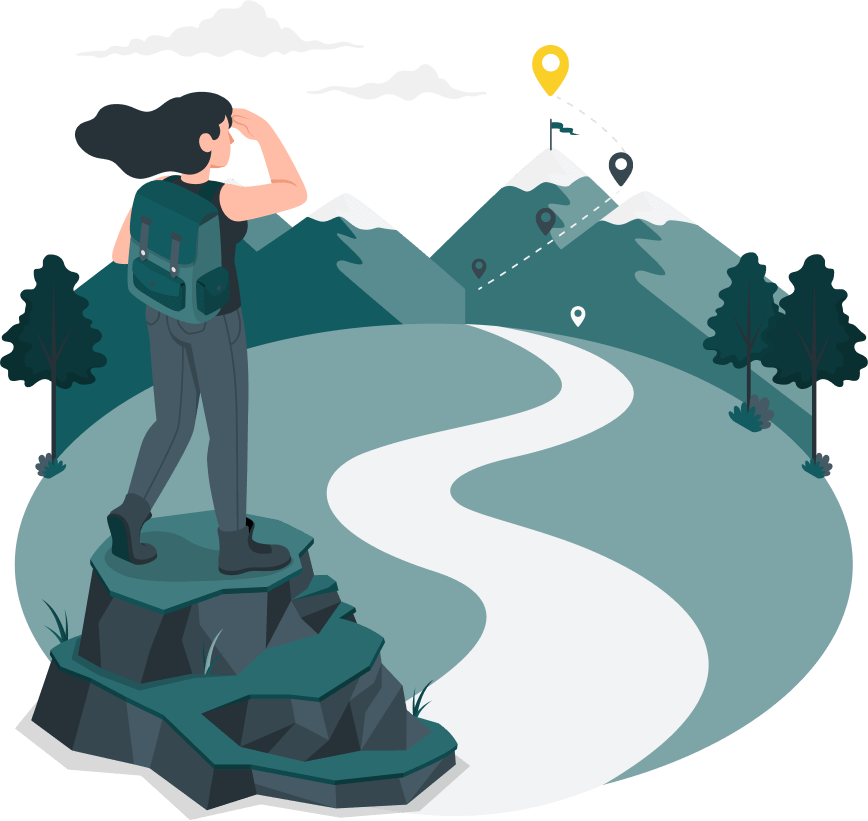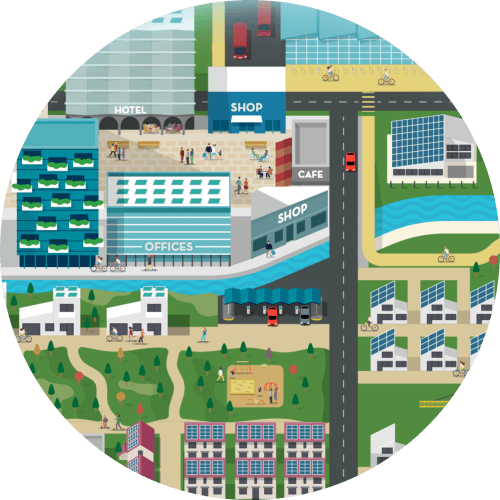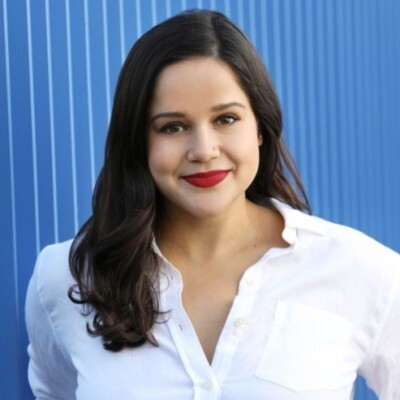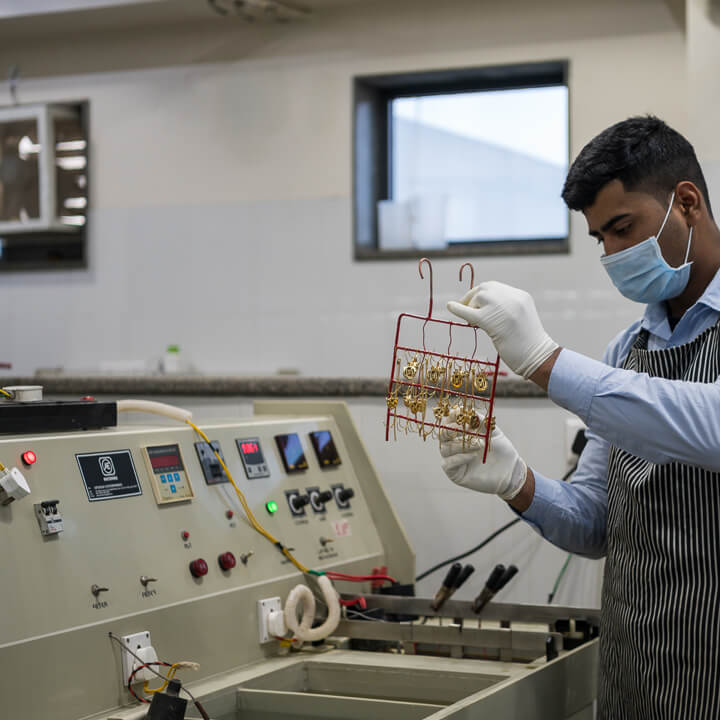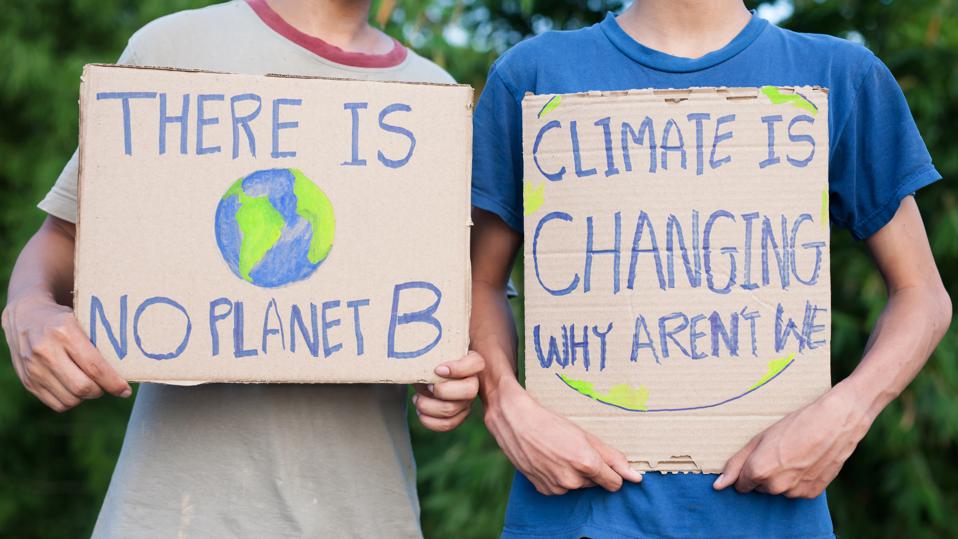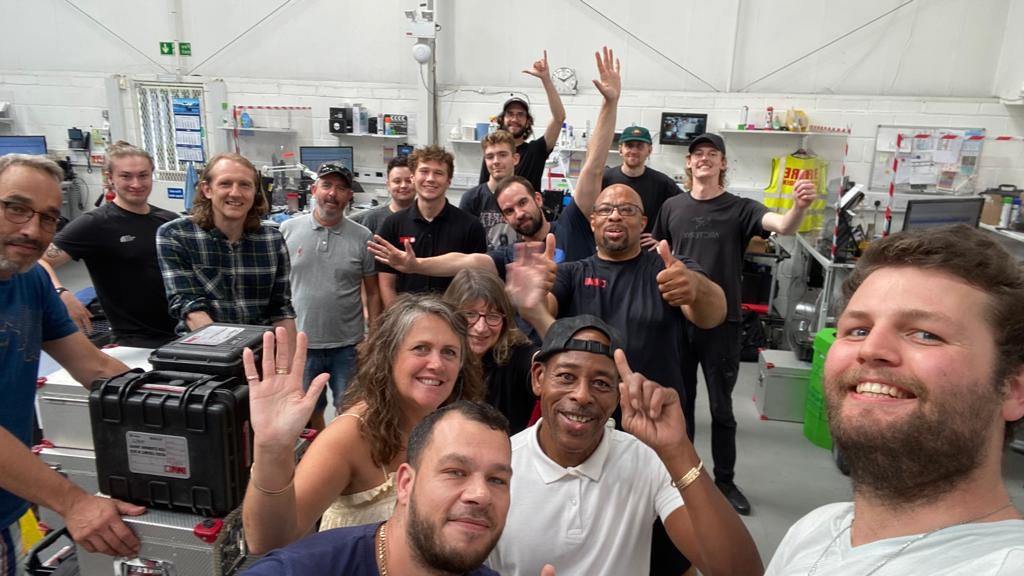How Dr. Bronner’s Charted a Revolutionary Climate-Action Course, and Blazed a Trail for Other CPG Brands Along the Way
For decades, Dr. Bronner’s has delighted loyal customers with clean, organic body-care products—and behind those beloved bottles and soap bars lies one of the industry’s most impressive sustainability success stories.
The family-owned company, an SME Climate Hub member, has revolutionized the way body-care brands do business. It built a fair, sustainable supply chain from the ground up, with an equitable ecosystem that benefits farmers and local communities.
This kind of groundbreaking work requires serious investment, but for Dr. Bronner’s, a planet-and-people-first mentality is ingrained in the business. It stems from a core company value rooted in love. “You protect the things you love. People don’t often talk about love in business, or justice in business, but we should,” says Darcy Shiber-Knowles, Director of Operation Sustainability and Innovation for Dr. Bronner’s. “Businesses are run by humans and humans love. Do business as if love ran the world, and we wouldn’t have a climate crisis.”
Dr. Bronner’s sustainability journey has evolved into one of the industry’s best conservation success stories; it’s packed with insights and lessons for businesses at any stage of their climate-action commitment.
Founded on empathy
Compassion touches nearly every aspect of this family-owned business, founded in 1947 by third-generation German Jewish soap-maker Emanuel Bronner. Prior to launching today’s world-renowned Dr. Bronner’s brand, Emanuel’sis family had been making soap for nearly 100 years, but the Nazis took over the original company. His parents were tragically killed in the Holocaust.
“These events, and Emanuel’s eccentric approach to life, led him to strongly believe he had an obligation to save planet Earth,” says Gero Leson, Dr. Bronner’s Vice President of Special Operations. “He combined a soap-making business and vision to unite humanity in a unique way, using his soaps as a vehicle for this message.”
Bronner passed on this pay-it-forward mindset to his sons, and later his grandsons, Mike and David, who now continue the family’s momentum. “This is where our sustainability story really starts,” says Leson.
If you can’t find it, build it.
As Mike and David grew the California-based company, they noticed a gap between the sustainable company they had built, and the one they wanted to be—particularly with their castile soaps, which require coconut, palm, and olive oil, plus a few essential oils.
“The oils being used were organic, but David wanted them to be fair trade, too,” says Leson. “He felt this was the only meaningful standard for the social quality of an ingredient. Organic didn’t tell him where the oils actually came from or what the conditions were like for workers on the ground.”
At the time, there were only a few fair trade-certified products widely available, largely cocoa, coffee, and sugar. The market didn’t have what they were looking for, so they went out and made it themselves.
“David suggested that we build our own organic and fair trade coconut oil mill in Sri Lanka,” says Leson. “I’d never done anything like this before, but I was up for it.” By 2005, Dr. Bronner’s had launched the first organic and fair trade-certified supply chain for virgin coconut oil. “We now have our own companies in Sri Lanka and other emerging economies, such as Ghana, where we produce organic palm oil and cocoa,” says Leson.
Bolstering sustainable local businesses
After building this new supply chain, Dr. Bronner’s took steps to ensure a mutually-beneficial business ecosystem. Local partners own and operate these enterprises with Dr. Bronner’s support:
“We create or partner with companies, help them to achieve organic and fair trade status, and make them economically viable by Dr. Bronner’s becoming a reliable customer,” says Leson. “We’re meeting our sourcing needs, but more importantly, we’re helping to train people in building and operating a fair and profitable business—one that looks after workers, their families, and their communities.”
To fund this kind of work, Dr. Bronner’s allocates more than 1/3 of its profits to charitable and activist causes. It’s all possible because of the company’s business mindset—a mindset that aligns with its family-owned value of compassion first. “We are profitable, yet we don’t distribute dividends to the company’s owners for personal purposes,” says Leson. “Company policy is that the highest paid Executive’s salary cannot exceed more than five times that of the lowest-paid fully-vested position. It sounds simple, but it requires people to be willing to give up the millions they could be making otherwise.”
Climate action from every angle
For Dr. Bronner’s, climate action is multifaceted, from improving agricultural practices to rethinking plastic. Take its game-changing work with farmers. In addition to improving livelihoods of farmers and suppliers around the world, Dr. Bronner’s helps these communities “shift to regenerative organic agricultural practices that increase yields and improve soil fertility,” says Leson. “These practices can sequester huge amounts of atmospheric carbon, bringing it back into healthy soil in the form of stable organic matter.”
The team’s internal climate-action goals extend well beyond achieving net zero. “From a climate standpoint, our published goal is climate positivity, or carbon negativity, so we’re actually hoping to capture more carbon than we emit through our business operations,” says Shiber-Knowles, who notes the majority of Dr. Bronner’s emissions are Scope 3. “Net zero by 2030 is not enough to ensure climate stability. All businesses, large and small, need to be climate positive because we have a carbon debt.”
Another area the company hopes to improve upon is plastic use, such as its well-known peppermint castile liquid soap, which comes in a single-use 100% PCR recycled plastic bottle. “Plastic is obviously connected to the climate crisis. Dr. Bronner’s is working to design our way out of single-use plastic, but in the interim, we’re also exploring plastic insetting,” says Shiber-Knowles. To achieve this, the team is coordinating a waste collection and reuse recycling program with supply-chain partners in Ghana and India.
“It’s pretty simple: We calculate our plastic footprint, then impose a fee on ourselves based on the plastic type used, in particular if it wasn’t PCR, and if it can’t actually be recycled,” says Shiber-Knowles. “This fee goes into a fund that we use to directly support the fair trade-operated waste collection and reuse/recycling programs, ensuring those who collect the plastic are paid for their efforts.”
Advice for small businesses
If you’re just starting out on your climate-action journey, Dr. Bronner’s sustainability successes might be intimidating—but they shouldn’t be. This medium-sized family-owned company is proof of the power and possibility small to mid-sized businesses have. The most important thing to do is start.
“First, pick something. One thing is not enough, but just start there and keep going and don’t stop,” says Shiber-Knowles. “Second, work in partnership. You should not be doing this work alone, nor do you have to.” In fact, resources like the SME Climate Hub were designed to help small and medium-sized businesses work toward these lofty climate-action goals together.
Shiber-Knowles’ final piece of wisdom? “Sustainability cannot be vertical. Climate work cannot be one person’s responsibility and environmental efforts cannot be one department’s responsibility,” she says. “Figure out, in your business context, how to engage as many allies as possible across the organization. Democratize the environmental work, then it will start to take off in ways that are beyond what you could do on your own.”
To follow in Dr. Bronner’s planet-friendly footsteps, make your company’s SME Climate Commitment today.
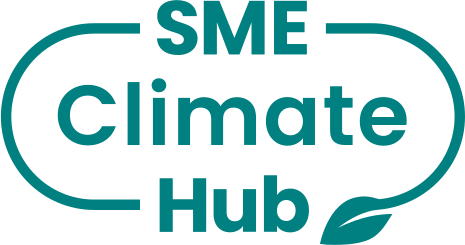
 Go back
Go back